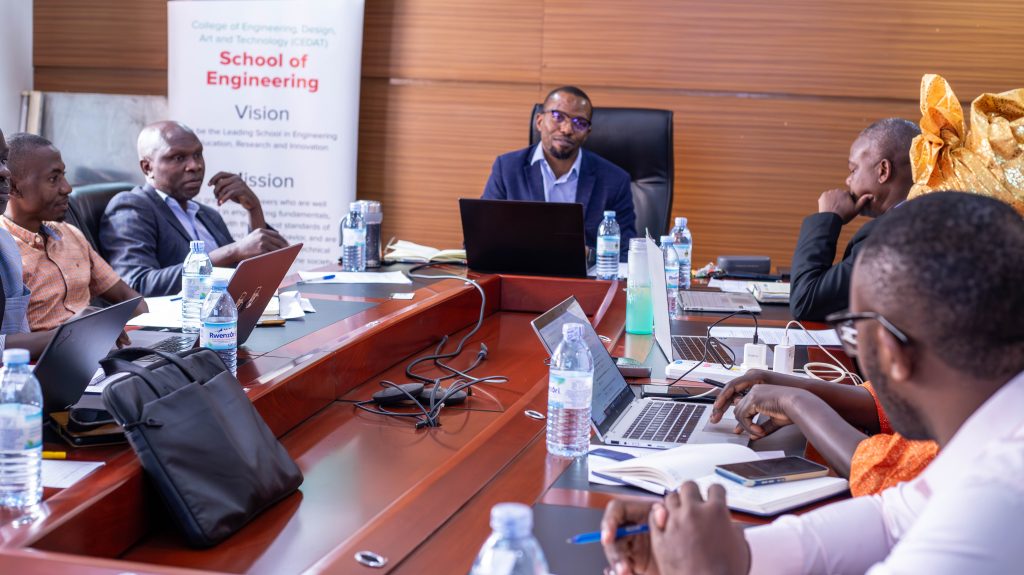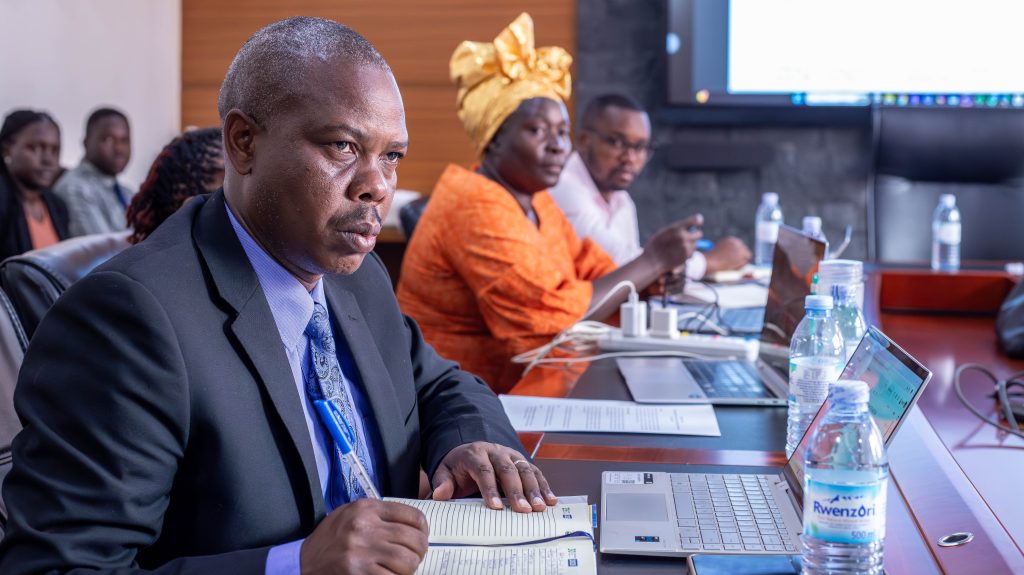By Kikomeko Pius
On July 30th, 2025, the College of Engineering, Design, Art and Technology (CEDAT) proudly hosted a landmark workshop aimed at shaping Uganda’s energy future. Held in the CEDAT Boardroom and led by Dr. Francis Mujjuni of Makerere University, the meeting brought together lecturers, Deans and energy experts from eleven public universities across the country to draw a roadmap for establishing Sustainable Energy Centers of Excellence (SEnCE) in each. These eleven public universities include Makerere University, Mbarara University of Science and Technology (MUST), Busitema University, Gulu University, Kabale University, Makerere University Business School (MUBS), Soroti University, Muni University, Kyambogo University, Lira University and Mountains of the Moon University.

invited representatives from the different public universities in Uganda.
The concept presented detailed that the SEnCE initiative is more than just a project, it’s a national strategy to empower Uganda’s public universities to lead in sustainable energy research, innovation and policy development. Unlike short-term innovation hubs, these Centers of Excellence (CoEs) are envisioned as long-term institutional platforms that will serve as regional hubs of expertise in energy subfields and foster partnerships between academia, government and industry. Each university will define its own niche based on regional energy challenges and institutional strengths, creating a diverse yet unified network of specialized centers.
During the workshop, participants proposed a range of thematic areas to guide the development of these Centers which include:
- Renewable energy technologies
- Smart grids and digital energy management
- Clean cooking solutions
- E-mobility and electric transport
- Energy efficiency and conservation
- Bio-economy and circular economy
- Productive use of energy in agriculture and industry
This thematic diversity ensures responsiveness to local challenges while aligning with global sustainability goals.
To ensure strategic coordination and sustainability, the participants resolved to establish a comprehensive collaborative framework by creating a National SEnCE Secretariat to guide policy and resource mobilization, appointing university focal points for internal coordination and forming thematic working groups to drive research and policy engagement. They also agreed to drafting a national-level Memorandum of Understanding (MoU) to formalize collaboration and forming thematic working groups to drive research and policy engagement.

Participants raised important questions around governance, human resource development, integration with existing structures, standardization and resource equity. These concerns will inform the next phase of planning to ensure the initiative is inclusive, transparent and impactful.
With strong institutional commitment and a clear set of resolutions, the SEnCE initiative is set to become a transformative force in Uganda’s energy landscape. It is an amazing first leap in fostering collaboration and innovation that will shape the future of sustainable energy in Uganda and beyond.
The journey to a cleaner, smarter and more resilient energy future has only just begun.
